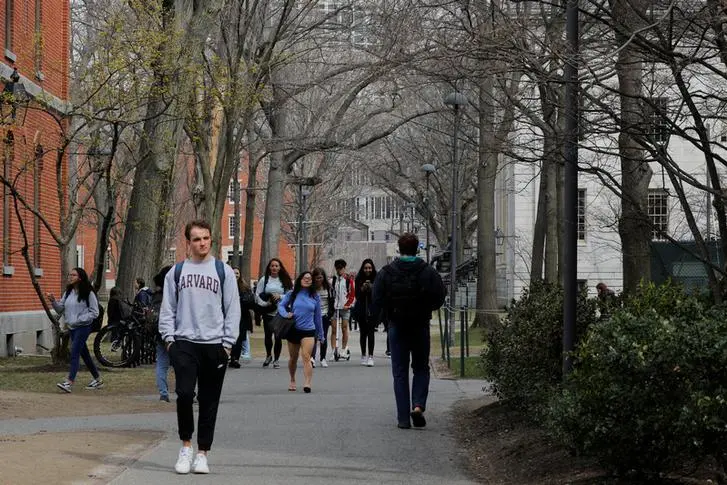PHOTO
The coronavirus disease (COVID-19) pandemic has caused nothing short of pandemonium. Witnessing economies of all sizes being crippled, vibrant spaces silenced, and livelihoods abducted is enough to stir a mental health crisis. At the onset of the lockdown, Yale University reportedly received a flurry of enrolments for its “Science of Well-being” course, offered online via the global learning platform Coursera. The course explores what makes people happy based on scientific evidence, as well as prompting them to adopt positive habits that increase well-being. What started out in 2018 as a series of live lectures by psychology professor Laurie Santos has quickly transformed into an online course attracting some 2.8 million learners worldwide and has become the most popular course in Yale’s 318-year history.
For centuries, universities have served as centers of excellence, illuminating our minds, solving some of humankind’s most complex problems, and improving the quality of our lives. This crisis has highlighted the importance of investing in education, as we witness some of the world’s most prominent universities and research laboratories racing to produce an effective vaccine against COVID-19, in addition to sharing valuable research that is helping to solve the wicked problems created by the pandemic. This is the expansive power of education in addressing challenges of all kinds.
More fundamentally, there is a pressing need to democratize education, reinventing it to allow for greater access by students all over the globe in order to achieve its grand purpose of improving people’s livelihoods and contributing to the betterment of our world. This can be possible if the education sector embraces the digital revolution.
During the pandemic so far, more than 90 percent of students worldwide — about 1.6 billion in total — have missed out on time at school due to temporary closures. Universities and schools that were agile in adapting to the digital revolution have been able to transfer teaching online. However, many vulnerable students do not have access to technology and face the risk of having to drop out due to costly tuition fees amid reduced family earnings. Furthermore, the escalating costs of traditional college degrees, combined with reduced wage growth in recent years, have exacerbated the situation for graduates, making it difficult to make ends meet, pay off student loans, invest in housing or save for retirement. Considering the challenges of accessing quality and affordable education, it is imperative the education system is reinvented.
Today, modern technology is enabling learners to virtually access knowledge of all kinds, including homeschooling for children, young people pursuing a college degree, and employees aiming to upgrade their skills or develop another specialization. According to a report published by Global Market Insights, the online education market is set to exceed $375 billion by 2026.
The pandemic has allowed online education to show its worth. Virtual learning platforms are offering expanded opportunities on a variety of subjects and skills in partnership with renowned universities and world-class luminaries to millions of students worldwide. Students can access content that is relevant, updated and available at all times, contrary to textbooks or live lectures. They are also able to connect with tutors and peers via instant messaging and online video discussion forums.
Furthermore, students can access a variety of degrees and courses offered by top-tier universities, successful companies and brilliant thinkers at a fraction of the cost. For those who have work commitments and family care responsibilities, online learning is a convenient, time-saving and flexible way to continue learning, as it saves time on commuting and enables a better work-life balance. Consequently, online learners are able to get better employment opportunities.
Many universities are luring students with a fascinating array of courses. These include Oxford, King’s College London, Imperial College London, Harvard, Stanford, MIT, Princeton, and Sorbonne. Specialist organizations — such as the British Council, British Library, IBM, UNESCO, and Microsoft — have also developed online courses. Additionally, online learning platforms are partnering with universities and instructors to make their courses available to a wider audience. Examples of some free online courses that are currently offered by universities include sustainable food systems for the 21st century, fundamentals of neuroscience, language arts, entrepreneurship, climate change and health, and finance fundamentals. For the first time in history, valuable knowledge that was once reserved for the elite thinkers, geniuses and scholars can now be accessed on online learning platforms. Additionally, many such courses are free.
For this digital revolution to succeed, governments, enterprises and communities need to come together to close the digital divide between privileged and disadvantaged students. Governments can offer grants to families so they can purchase the necessary technology and wireless internet packages. Schools can offer widespread bandwidth access across their campuses, supply tablets to students that need them, and teach basic digital literacy skills. Partnerships with telecommunications businesses can result in low-cost internet access for families. Establishments can also offer free Wi-Fi in places where students tend to convene, such as public libraries, community centers and cafes.
By democratizing education using digital technologies, we can finally unleash the potential of education and reap the benefits of an improved world.
- Sara Al-Mulla is an Emirati civil servant with an interest in human development policy and children’s literature.
Copyright: Arab News © 2020 All rights reserved. Provided by SyndiGate Media Inc. (Syndigate.info).





















